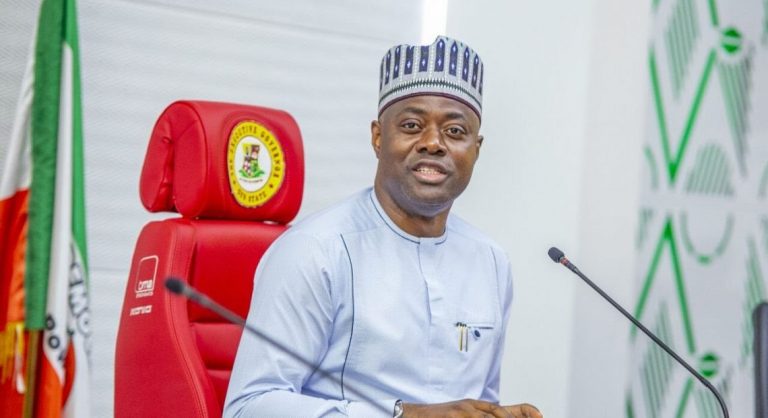.. how not to desecrate tradition.
Law, constitution, edict and decree are all pointers to one direction. They all connote rules and regulations. They are ethics, norms, customs and ethos that dictate direction of governance. Every law has an element of cultural background of the people. The major intent of laws is to guide against excesses and instil decorum. Where laws are elusive, anarchy prevails. The entire globe is a product of rules and regulations. Even in sports, rules are inevitable. The absence of constitution in a nation is akin to a football match without goalposts.
Be that as it may, laws are made for people and not otherwise. However, every law made is in tandem with the existing practice which are susceptible to change in conformity with current trend. Change is inevitable. A law that is imuned against change becomes controversial, ambiguous and conservative.
Review is the process of editing a law or ordinance. It is against the backdrop of flaws and irrelevances.
Ordinances that look obsolete and aquake are also proned to review. It is a matter of expunging the clauses, minus and plus to give it a facelift or human face.
Traditional institutions in Yorubaland are the constituted authorities in the ancient days. The royal fathers are the custodians of culture and heritage.Then, they were the executive arm and wielded enormous power over their subjects.Civilization has however eroded the power hitherto confered on the royal fathers by culture. As presently constituted, little or no regard is attached to royalty. The executive governor of the states have become the deciders of the fates of the obas. Nigeria’s constitution places the governors above the kings. From nomination to installation and to salary, governors dictate the pace. Woe betides any oba that embarks on a journey outside his jurisdiction without the express permission of the governors. Any royal father that trespasses does so at the detriment of his status. Such a king would incur the wrath of the governor through various sanctions such as: relegation of status in the comity of Obas, deposition and banishment. His salary could be withheld and other entitlements could be suspended.
Recently, the review of ordinances that established chieftaincy matter in Oyo state; especially Ibadan, led to serious controversies. For the first time, the traditional method of ascension to the throne of Olubadan was contested and challenged. This was consequent upon the demise of Oba Saliu Adetunji. The age-long method of ascendancy which was globally adjudged to be the most peaceful was brought to disrepute. The simmering crisis was at the instance of the elevation of the high chiefs to the position of obas. To an average Ibadan man, the elevation was implemented to settle innuendos, vendetta and for political witch-hunt.
There are two schools of thought on this matter. A school was of the conviction that the governor then, Late Ajimobi had the right to effect the promotion while the other school of thought was of the opinion that it was sacrilegious to tamper with the existing order. This dilemma led to litigations which almost marred the selection of the next oba until the current governor of Oyo state, Engineer Seyi Makinde intervened. The brouhaha that trailed the review assented to by the late governor was unprecedented and that is why a cursory look at similar exercise is essential. Hence, the comparative assessment of the reviews of chieftaincy issue in Oyo state and her neighbouring state, Ogun.
Monday 17th of January, 2022 , Governor Dapo Abiodun signed the Ogun State Chieftaincy Bill into law. The bill was titled; ‘Obas, Chiefs, Council of Obas and Traditional Council law of Ogun State, Bill 2021, is aimed at “respecting human dignity and promotion of modernity” in the installation of new Oba. It also aimed at curbing fetish practices in the process of installing and burying traditional rulers in the state and finally, upgrading of Baale to Oba. From the term of reference, the review in Ogun state had wider scope and more cumbersome than Oyo state. Yet, there was no wahala !
In the case of Ogun state, the bill emanated from the traditional council which was passed to the State House of Assembly, where a public hearing was held. On the other hand, Oyo state was purely an executive bill although, some apologists strived to give it a colouration of people’s will. There was an argument that it was the work of previous governments who were not bold to implement it. Three basic facts are logical from the process adopted by Ogun state Viz; initiated by traditional council, subjected to public opinion and debated by house of assembly.
Review is procedural. It must follow certain rudiments. Any law that is passed without the inputs of the populace is seen as a decree; characterized by order and draconian tendencies. Such law is despotic, an effort in futility from conception and bound to fail.
Let me make a clarification. Bill could be initiated by anybody. The late governor of Oyo state had the right to initiate a bill but such bill must follow sequence without any parochial sentiment. The fact that the elevation in contention did not follow due process; despite the germane nature of the exercise made it suspicious and so; was misconstrued as a unilateral decision shrouded with sinister and political motive.
According to the speaker of Ogun state house of assembly, the bill passed through a very rigourous exercise and subjected to inputs from the public and scrutiny before it became law. There was a public seating which attracted more attention than any public seating that the Assembly has had in the recent times. This is due process.
I was engrossed in an intellectual discourse on this issue with some friends penultimate weekend. They posited that Ogbomoso town has four Obas despite the fact that the town is smaller than Ibadan. Another was of the opinion that there are other Obas in ife aside Oonirisa. Yoruba cradle for that matter. Obalufe..oba ni. Obaloran..oba ni. They were right but where they erred was their inability to take cognisance of Ibadan’s peculiarity. What am I saying !
The high chiefs lineage of Olubadan-in-council is different from the various obas at various suburbs in Ibadan. There are traditional obas at the various hitherto independent towns before the amalgamation . Yes, I make bold to say that Ibadan is an amalgamation of various towns that were captured and coerced into the cosmopolitan city. There were Ijaye, Ikereku, Onidundu, Moniya, Lalupon, Ejioku, Akanran, Pade and a host of others. All these ancient towns had their Obas but ironically, they are currently under the high chiefs who collect royalty from these Obas till date.
Progressive modernity further altered the status of the villages. This is evident in the evolution of cultures and civilisations that are considered fluid and dynamic. Review is all about transformation. Suffice to say that the title; Olubadan was a transformation from Bale. A change of nomenclature which helped to further strengthen the system in the face of the changing realities of the period.
From its’ formation around 1829, leadership of Ibadan bore the title of Bale. There were Bale Apampa in Isale – Osi, Bale this and Bale that.
In truth, the review was not bad but if the then governor had not allowed ego to dictate his action, there would not have been any uproar.
Aside this, the firmer governor should have exhausted all amicable options to bring everybody on board. He should have gauged the opinion of the volatile public and above all, he should have allowed the reigning kabiesi crown the high chiefs.
The former governor has come, served and gone like everyone before him. And so will everyone at his own time. Whatever we do become history and that is why we all need to be wary of our actions. He was a peace-loving and an outstanding custodian of ingenuity who held on strictly to the principles of excellent leadership. He would forever be remembered for his consistency and tenacity of purpose in whatever he believed would advance the course of Ibadanland. But he was a mortal, susceptible to errors.
The lesson from this is the need to thread the path of honour and respect majority view. No matter the necessity of a change, it must not be made to look as a way of harbouring malice. Hence, the scepticism.
Comrade Lekan Badmus is a Columnist with Oduduwa News and a public opinion analyst.
For comments:
lekanbadmuscolumn@gmail.com
Mobile No: 08060002439





